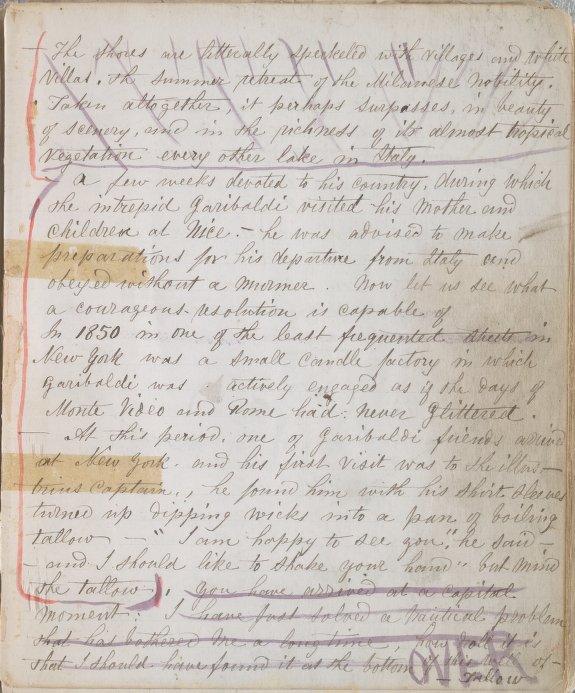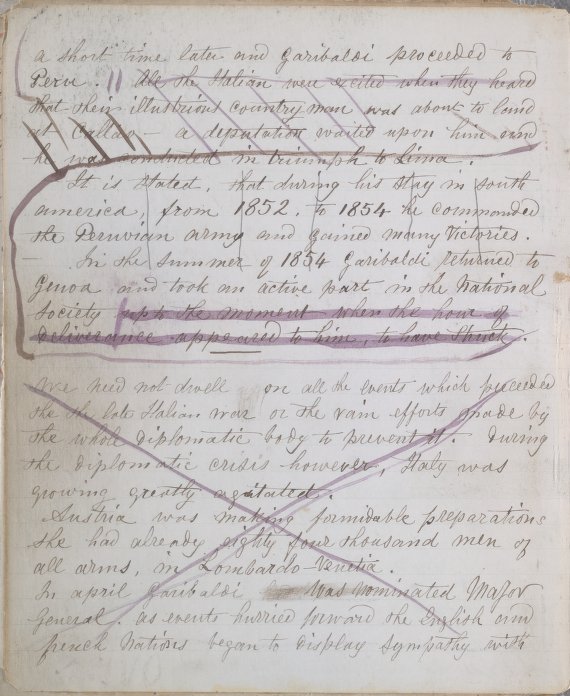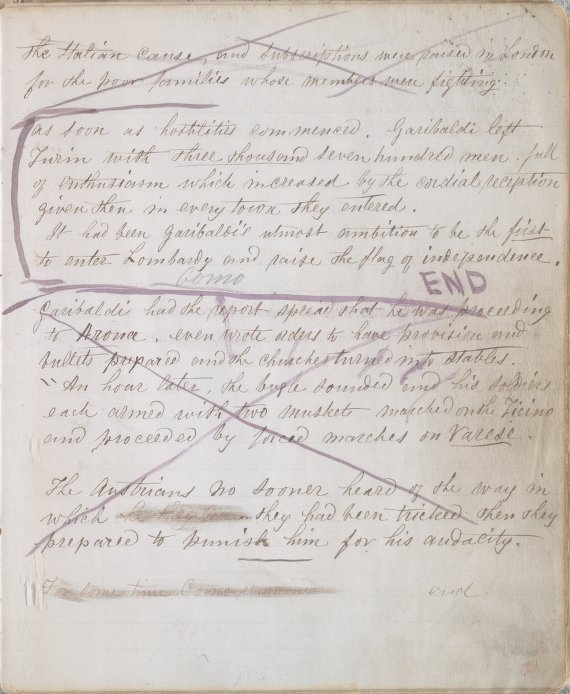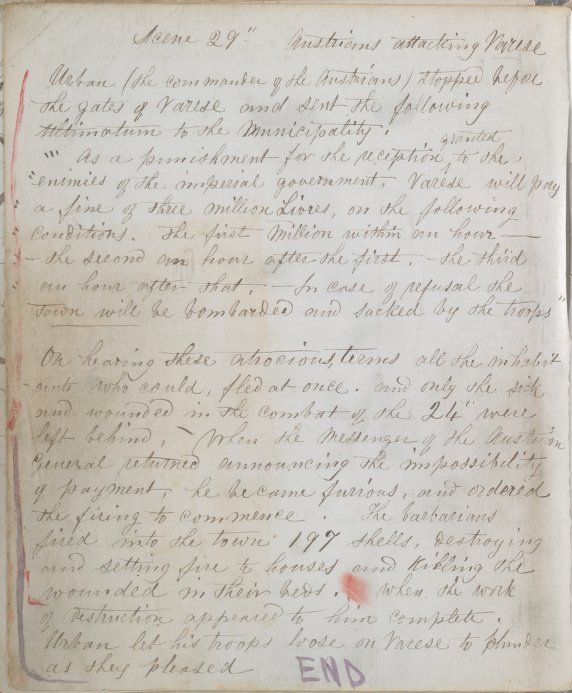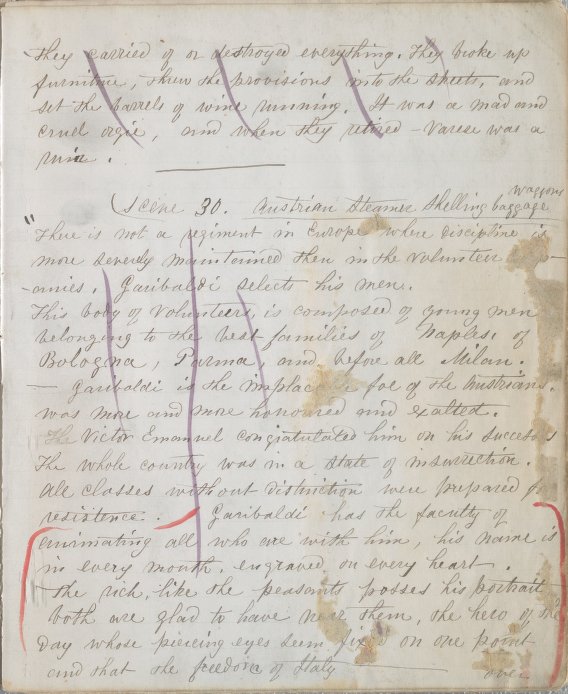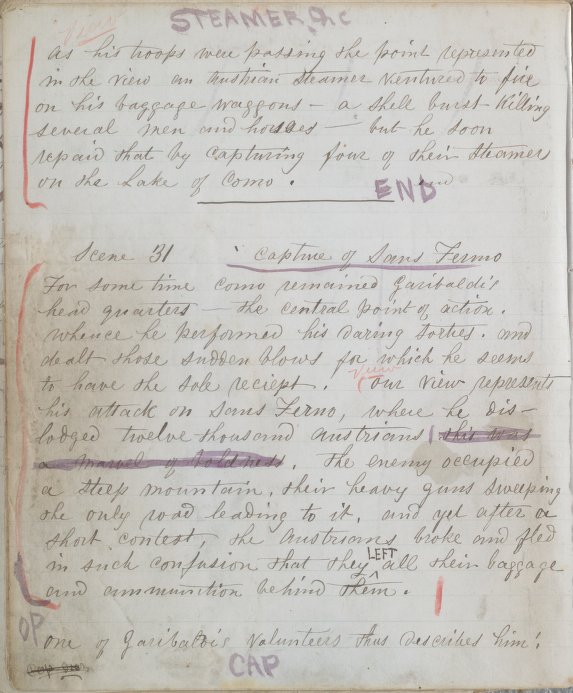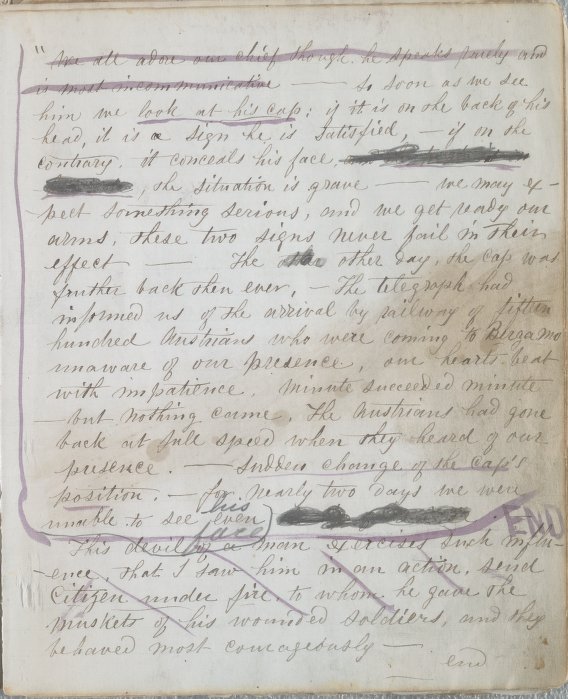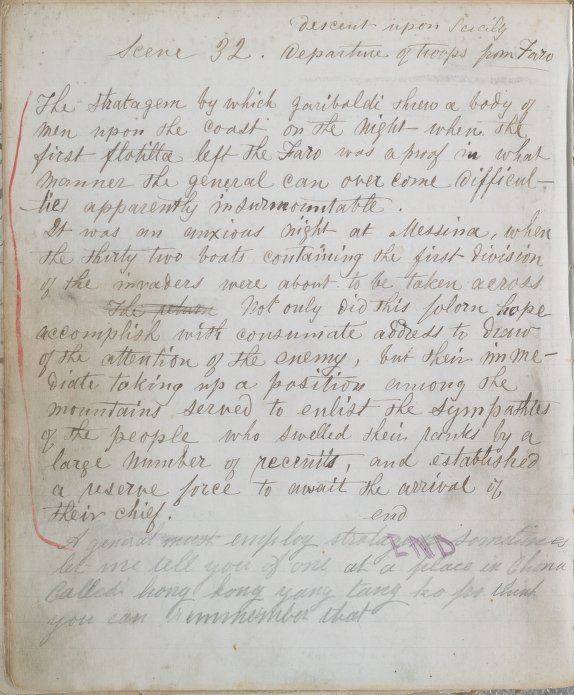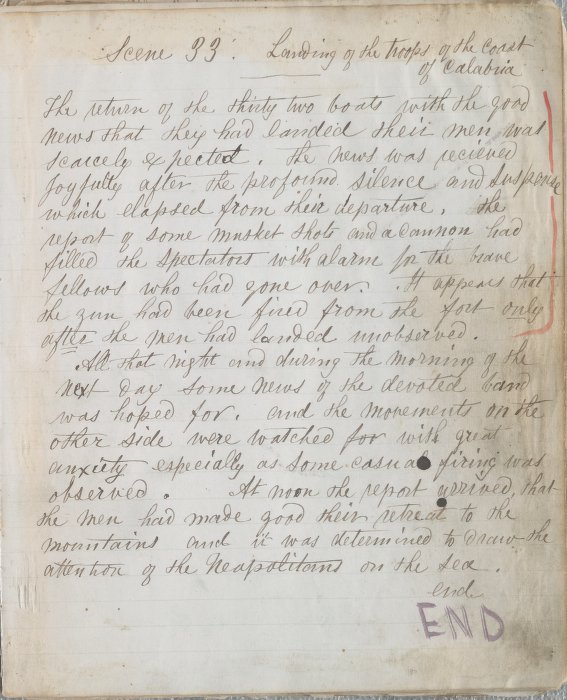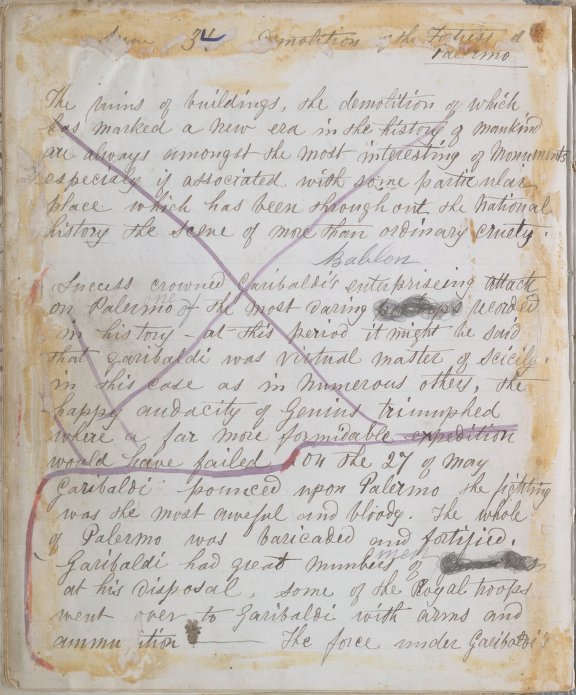Page 81
—The shores are literally speckeled with villages and white
villas, the summer retreat of the Milanese nobility.
Taken altogether, it perhaps surpasses, in beauty
of scenery, and in the richness of its almost tropical
vegetation every other lake in Italy.
A few weeks devoted to his country, during which
the intrepid Garibaldi visited his mother and
children at Nice.—he was advised to make
preparations for his departure from Italy and
obeyed without a murmur. Now let us see what
a courageous resolution is capable of
In 1850 in one of the least frequented streets in
New York was a small candle factory in which
Garibaldi was actively engaged as if the days of
Monte Video and Rome had never glittered.
—At this period, one of Garibaldi
friends arrived
at New York, and his first visit was to the illus
trius captain, he found him with his shirt sleeves
turned up dipping wicks into a pan of boiling
tallow—"I am happy to see you," he said—
—and I should like to shake your hand but mind
the tallow. You have arrived at a capital
"
moment: I have just solved a nautical problem
that has bothered me a long time, how droll it is
that I should have found it at the bottom of this well of—
—tallow.

